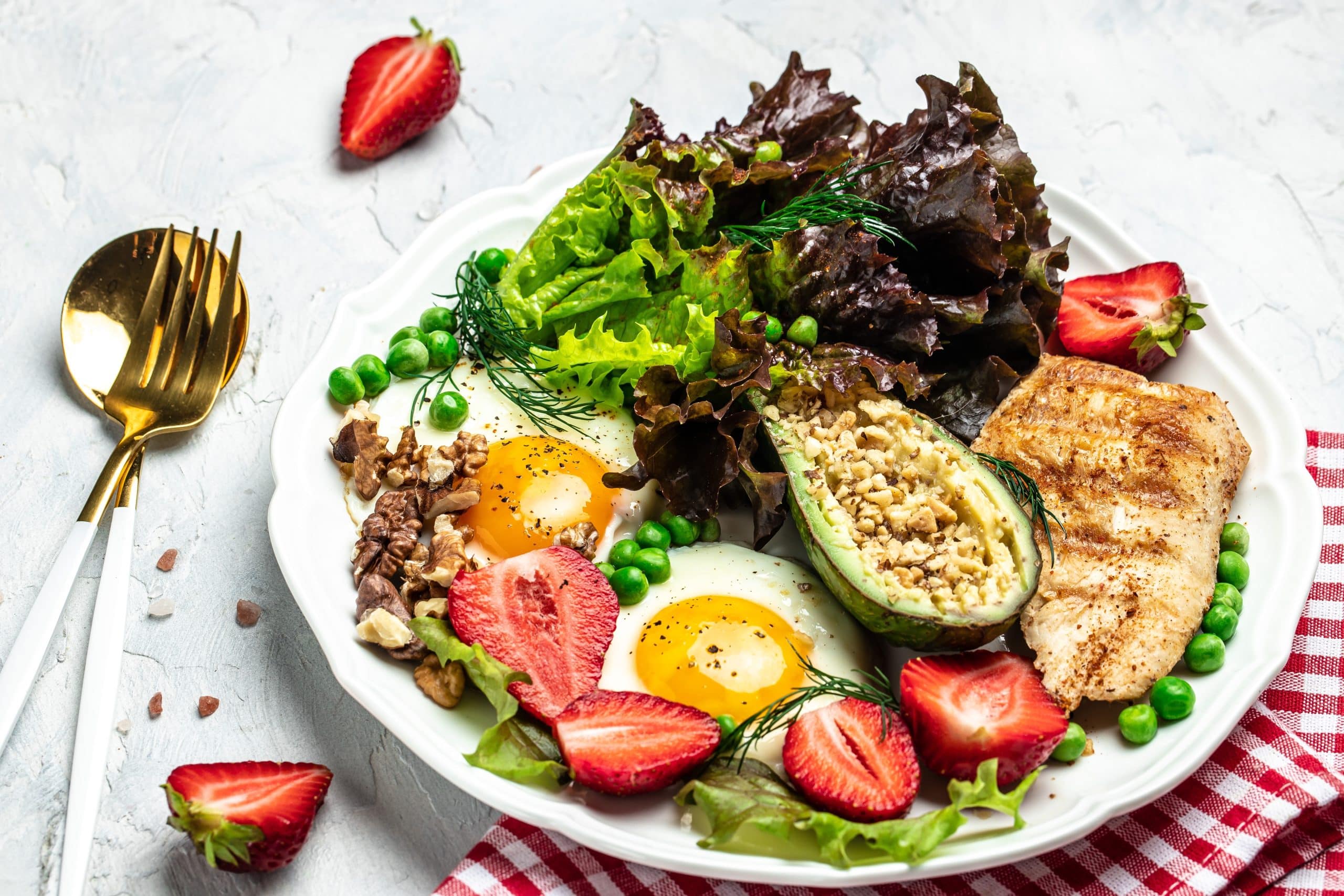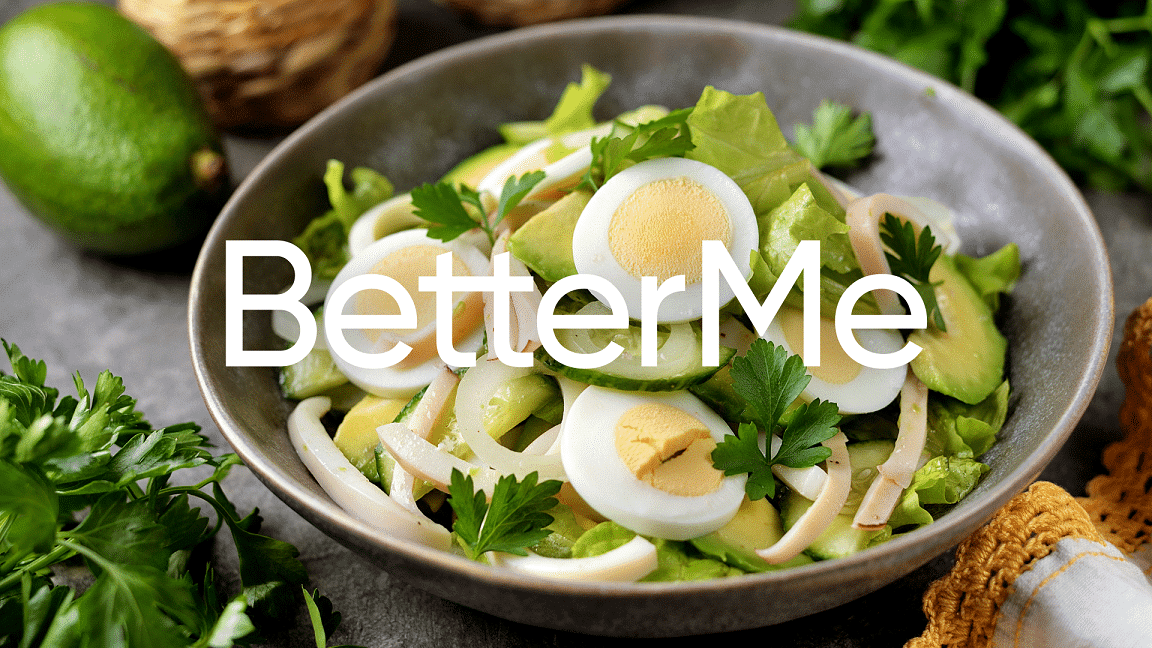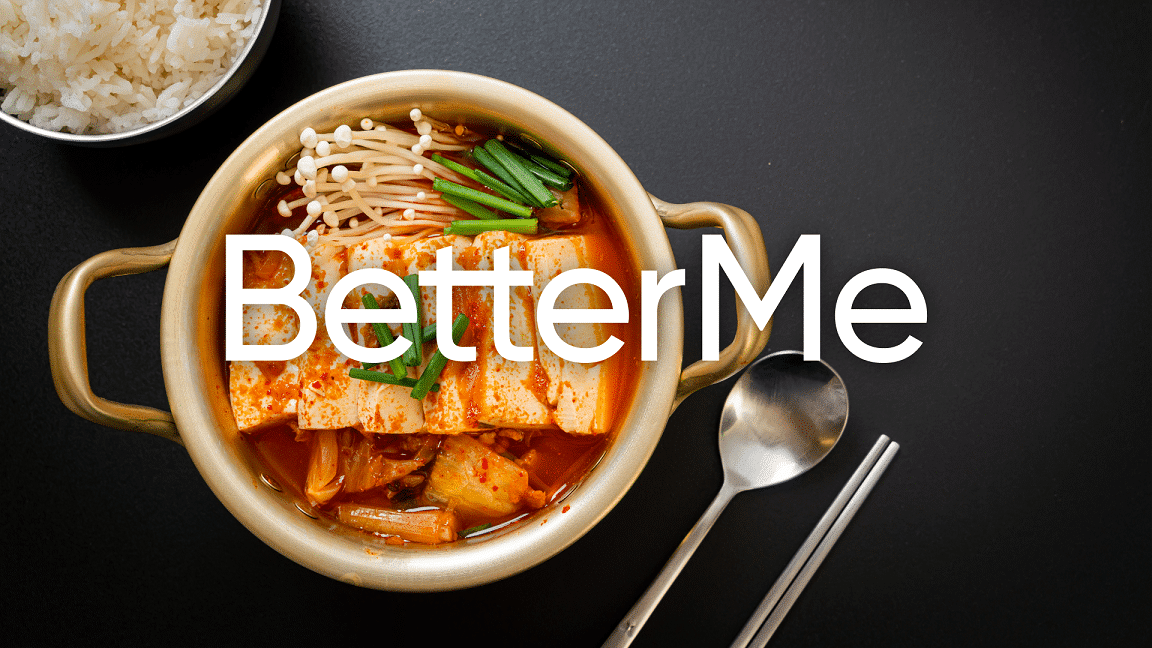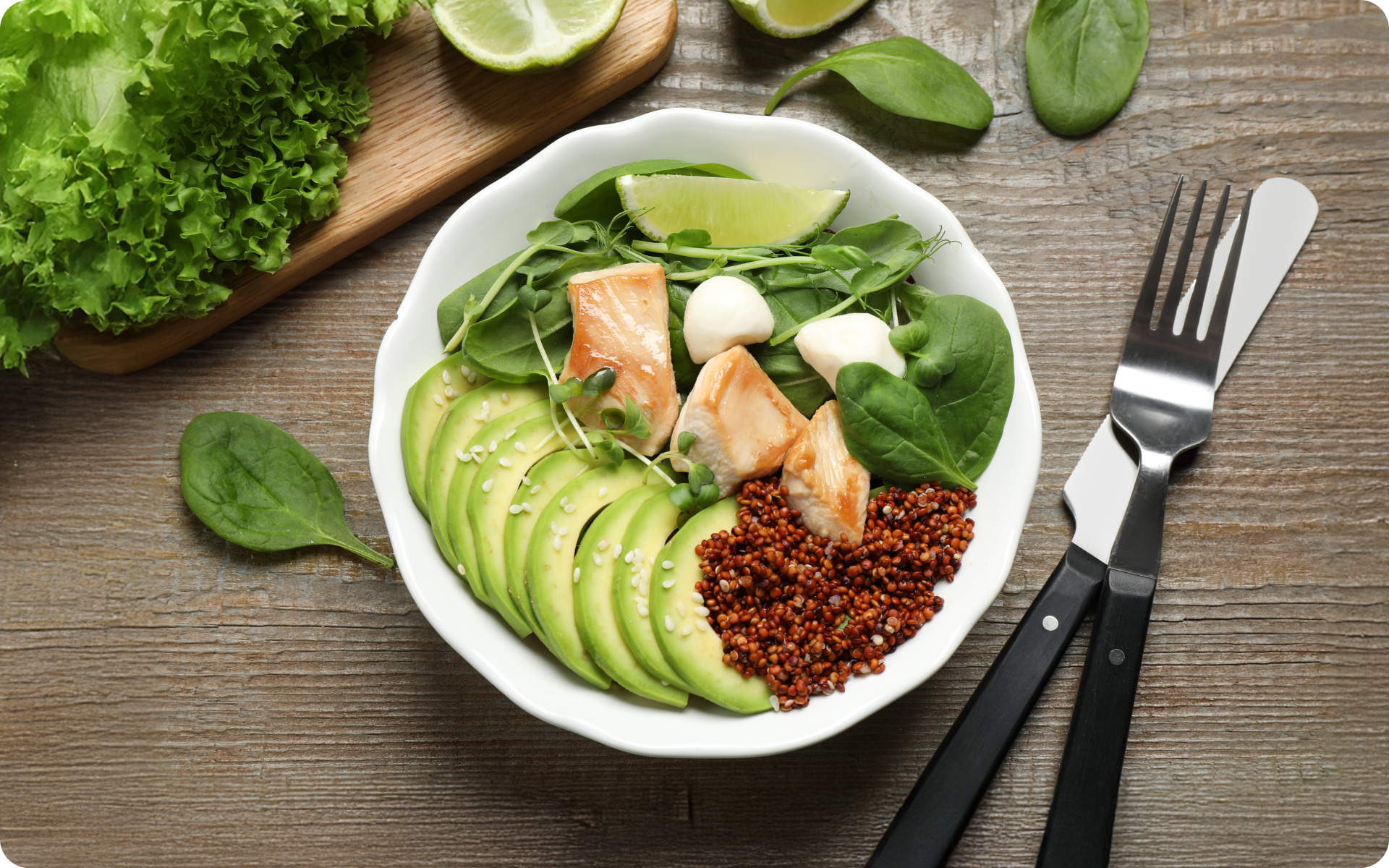No matter how much of a bad rep carbohydrates get, one thing is for sure: our bodies can’t survive entirely without this nutrient. Carbs aren’t only essential for providing energy to power your workouts, but also for supporting brain function and maintaining overall health.
If you’re an athlete aiming to optimize performance, or simply someone looking to balance your nutrition, you may want to consider carb cycling.
Carb cycling is a handy nutritional strategy that involves alternating between high and low-carb days. By doing so you can tailor your carb intake to your body’s needs and workout intensity (4).
But the constant switching from high to low-carb days can get a little overwhelming and make it difficult to plan meals.
Having a meal plan takes so much guesswork out of the process, making it easier to stick to your goals.
Here’s what you need to know to make a carb-cycling meal plan like a pro.
Is Carb Cycling Good for Weight Loss?
Carb cycling can be good for weight loss if you do it right. Why do we say that? Traditional low-carb diets have been well-researched as far as their benefits for weight loss go, and the evidence is clear that they can work.
That said, they can be challenging to stick with long term because they restrict carbohydrates so much that people tend to struggle with low energy levels, cravings, and mood swings.
It is hard to stay away from carbs long enough for this type of diet plan to work. Our keto carb cycling article has more information on this topic.
Furthermore, comparative research doesn’t give convincing evidence that low-carb diets outperform all other diet approaches for weight loss.
Carb cycling is a form of calorie restriction so it definitely can be used for weight loss. And since it’s a bit more flexible as far as the food choices go–since you get to eat carbs–it may be easier for some people to stick with long term.
But (and this is a big but)–carb cycling also has the potential to derail your weight loss efforts if you’re not careful.
Dropping pounds by the dozens without putting yourself through the wringer is everyone’s weight loss pipe dream. But what if we told you that the BetterMe app can make that happen? Keep yourself in prime shape with our fat-blasting workouts, delicious budget-sparing recipes, and body-transforming challenges with our app!
Not everyone finds it easy to cycle endlessly between high and low-carb days, which can lead to overeating on the high-carb days.
That’s why it’s so important to have a solid carb cycling meal plan in place to make sure you’re getting the right amount of carbs for your goals.
We’ve shared a sample before in our blog titled the 12-week carb cycling meal plan, and we’ll also share another one later on in this article.
Weight loss may be top among carb cycling benefits, but it certainly isn’t the only one. Other benefits may include:
Improved Athletic Performance
Carb cycling can also be a game-changer for athletes. On high-carb days, you’ll have the energy to power through intense workouts, while on low-carb days, you’ll be able to burn fat more efficiently during low-intensity workouts (3).
This can lead to better endurance, strength, and overall athletic performance. Plus, having a structured meal plan can help you make sure you’re getting enough carbs for optimal performance without going overboard.
Better Muscle Growth
Eating enough carbs is crucial for muscle growth and recovery. Here’s why; carbs help replenish glycogen stores in your muscles after training.
Glycogen is your body’s storage form of carbohydrates, and it’s what fuels your muscles during exercise. By cycling between high and low-carb days, you’ll be able to optimize muscle glycogen levels for maximum growth (1).
What Are The Rules for Carb Cycling?
The rules for carb cycling concern the timing, quantity, and quality of your carb intake.
Timing
The timing of your high and low-carb days will depend on your goals, body type, and workout schedule. Generally, most people follow a 5-2 approach where they have five days of lower carbs and two days of higher carbs, with the higher carb days being the days they do their more intense workouts.
Quantity
The quantity of carbs you eat depends on whether it’s a high or low-carb day. Typically, on high-carb days, you’d aim for 1-2 grams of carbs per pound of body weight, while on low-carb days, you may go as low as 0.5 grams.
The percentages may change based on your goals and preferences, but one general recommendation is: at least 20% of your calories should come from carbs on low-carb days, and around 50% on high-carb days.
Quality
The quality of your carbs is just as important as the quantity. On both days, your best bet is to focus on whole, less processed sources of carbs like fruits, veggies, and whole grains.
Limit ultra-processed and high added sugar foods that aren’t very nutritious and can contribute to weight gain.
On high-carb days, you can get away with a pre-workout snack that’s higher in quick-digesting carbs for an extra boost of energy.
On low-carb days, it’s best to stick with slow-digesting complex carbs that provide sustained energy throughout the day.
Read more: Carb Cycling for Women: The Ultimate Guide
What Should I Eat on a Carb Cycle Day?
On a high-carb day, your macro breakdown may look like this:
- 50% carbs – whole grains, starchy vegetables, fruits
- 30% protein – lean meats, fish, eggs, dairy
- 20% fat – nuts, seeds, avocado
On a low-carb day, your macro breakdown may look like this:
- 20% carbs – mostly from non-starchy vegetables
- 40% protein – lean meats, fish, eggs
- 40% fat – healthy sources such as avocado, olive oil, and nuts
These are just general examples and may change, depending on your specific goals and preferences. It’s always best to consult a registered dietitian or nutritionist for personalized advice when creating a carb cycling meal plan.
Our guide on 21-day carb cycling is a great one for further reading on this topic.
How Do I Make My Own Carb Cycling Plan?
Making a carb cycling plan can seem daunting, but it’s actually quite simple.
First, determine your goals and how many high and low-carb days you want to have each week. Then, calculate your daily calorie needs based on your activity level and adjust the breakdown of carbs, protein, and fat accordingly.
Next, make a list of healthy sources for each macronutrient category and plan out your meals and snacks for each day.
For example, if you’re making a 7-day carb cycling meal you could choose 3 different carb sources, then pair them with protein and fat sources for variety so you don’t get bored.
Then, consider incorporating some meal prep to make it easier to stick with the plan throughout the week. You don’t have to prepare a whole month’s worth of food, it might go bad or you’ll get tired of eating the same thing over and over again.
Even when preparing a 12-week carb cycling meal plan, one week’s worth of meal prep is a good place to start, but find what works best for you.
Here’s a sample 7-day carb cycling meal plan to give you an idea of how it could look:
Monday (high carb day):
- Breakfast: Oatmeal with berries and almond butter
- Snack: Greek yogurt with granola and fruit
- Lunch: Grilled chicken, brown rice, and roasted vegetables
- Snack: Apple slices with peanut butter
- Dinner: Baked salmon with quinoa and steamed broccoli
- Dessert: Dark chocolate and mixed nuts
Tuesday (low carb day):
- Breakfast: Veggie omelette with avocado
- Snack: Cottage cheese with cherry tomatoes and cucumber slices
- Lunch: Turkey lettuce wraps with hummus and veggies
- Snack: Hard-boiled egg with carrot sticks
- Dinner: Grilled shrimp with cauliflower rice and sautéed zucchini
- Dessert: Sugar-free jello with whipped cream
Wednesday (low carb day):
- Breakfast: Protein pancakes made with banana and topped with nut butter
- Snack: Edamame beans
- Lunch: Tofu stir-fry with vegetables and brown rice
- Snack: Celery sticks with almond butter
- Dinner: Chicken breast with roasted sweet potatoes and green beans
- Dessert: Berries with coconut whipped cream
Thursday (high carb day):
- Breakfast: Whole grain toast with avocado and poached eggs
- Snack: Protein shake with banana and almond milk
- Lunch: Grilled turkey burger on whole wheat bun with sweet potato fries
- Snack: Rice cakes with hummus and cucumbers
- Dinner: Beef stir-fry with rice noodles and mixed vegetables
- Dessert: Frozen yogurt with fruit and granola sprinkles
Friday (low carb day):
- Breakfast: Greek yogurt parfait with nuts and seeds
- Snack: Turkey roll-ups wrapped in lettuce leaves
- Lunch: Grilled fish with quinoa and sautéed asparagus
- Snack: Beef jerky and string cheese
- Dinner: Baked chicken breast with cauliflower mash and roasted Brussels sprouts
- Dessert: Sugar-free pudding cup with sliced almonds
Want to build an attention-grabbing bubble butt, blast away fat that’s stored in all the wrong places, spring-clean your diet, turn back the clock on your skin, skyrocket your self-confidence and shatter your insecurities? Check out the BetterMe app and set this plan in motion!
Saturday (high carb day):
- Breakfast: Protein waffles topped with fruit and whipped cream
- Snack: Hummus and veggie sticks
- Lunch: Black bean soup with whole grain crackers
- Snack: Dried fruit and nut trail mix
- Dinner: Whole wheat pasta with marinara sauce and lean ground turkey
- Dessert: Angel food cake with fresh berries
Sunday (low carb day):
- Breakfast: Egg white omelette with spinach, feta cheese, and tomatoes
- Snack: Turkey jerky and apple slices
- Lunch: Grilled chicken salad with avocado and balsamic dressing
- Snack: Hard-boiled eggs with guacamole
- Dinner: Baked salmon with quinoa and steamed green beans
- Dessert: Greek yogurt with honey and crushed almonds
Read more: 21 Day Carb Cycling: Boost Your Fat Loss With This Weekly Meal Plan
The Bottom Line
A carb cycling meal plan can make the difference between seeing progress and hitting a plateau in your fitness journey. It allows for flexibility while still providing structure. The end goal of a carb cycling diet is to find balance and create sustainable healthy eating habits that support your fitness goals.
DISCLAIMER:
This article is intended for general informational purposes only and does not serve to address individual circumstances. It is not a substitute for professional advice or help and should not be relied on for making any kind of decision-making. Any action taken as a direct or indirect result of the information in this article is entirely at your own risk and is your sole responsibility.
BetterMe, its content staff, and its medical advisors accept no responsibility for inaccuracies, errors, misstatements, inconsistencies, or omissions and specifically disclaim any liability, loss or risk, personal, professional or otherwise, which may be incurred as a consequence, directly or indirectly, of the use and/or application of any content.
You should always seek the advice of your physician or other qualified health provider with any questions you may have regarding a medical condition or your specific situation. Never disregard professional medical advice or delay seeking it because of BetterMe content. If you suspect or think you may have a medical emergency, call your doctor.
SOURCES:
- Carb Cycling (2016,ace.org)
- Strategies of dietary carbohydrate manipulation and their effects on performance in cycling time trials (2013,nih.gov)
- What You Need to Know About Carb Cycling (2016,ace.org)
- What Is Carb Cycling? (2022,clevelandclinic.org)










